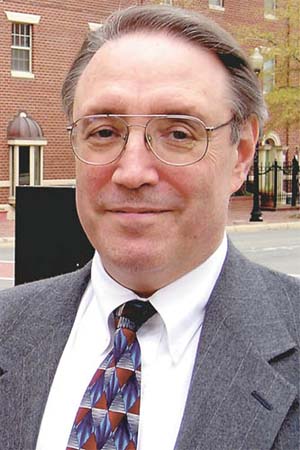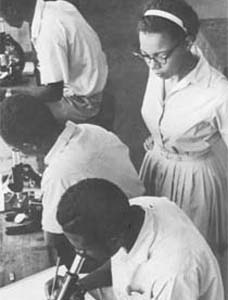
Pain Doctor sentenced to 25 years in prison. Hurwitz was a former volunteer medical director for the Peace Corps in Brazil in the 1970's. Some families will always consider Dr. William E. Hurwitz a healer.
McLean pain doctor, 59, sentenced to 25 years in prison.
By Ken Moore
April 21, 2005
Some families will always consider Dr. William E. Hurwitz a healer.
Elyssa Gurganus, of North Carolina, says she had already picked out a plot in a cemetery before she sought treatment from Dr. Hurwitz for chronic pain.
"After seeing him for months, I was back on my feet for the first time in 10 years," said Gurganus. "I thank God that he gave me my life, and I will always be grateful. He has saved so many lives."
Other families will always consider Hurwitz a killer.
"My mother had two visits with Dr. Hurwitz and was brought home in a container," said Jennifer Click, whose mother Linda Lalmond, 51, died in 2000 in a Falls Church hotel room after consulting Hurwitz for chronic pain.
"He can never restore what he has taken from us," Click told U.S. District Court Judge Leonard D. Wexler, during Hurwitz's sentencing last Thursday, April 14 in Alexandria. "I ask you to sentence him to life, which is far less than he sentenced my mother to."
Wexler sentenced Hurwitz, 59, to 25-years in prison. He also ordered Hurwitz, once considered a national leader for treating chronic pain patients with aggressive doses of opioid medication such as OxyContin and Dilaudid, to pay a $1 million fine.
After a six week trial last fall, featuring 76 witnesses — 63 for the prosecution — and thousands of pages of exhibits, a jury convicted the McLean pain doctor of 50 of 62 counts against him, including conspiracy to traffic in controlled substances, drug trafficking resulting in serious bodily injury and death, and drug trafficking distributions.
"I do not feel sorry for you. You were one of the chosen people," Wexler said. "By your behavior, you put people in jail. By your behavior, you seriously injured people. By your behavior, you killed people."
Hurwitz will file his formal intent to appeal the case to the Fourth Circuit Court of Appeals within 10 days of sentencing.
MORE THAN 135 people filled the 8th floor courtroom last Thursday. They comprised two distinct groups — one of family, past patients and advocates for patients with chronic pain who believe Hurwitz relieved pain and is a victim of overzealous prosecution, and the other of those families who wanted to see Hurwitz pay for the pain he's caused.
Hurwitz's supporters stood up to applaud him as he was led into the courtroom, wearing a green prison jumpsuit. At the same time, families of people who died under Hurwitz's care wept.
Defense attorney Marvin Miller said Hurwitz, a former volunteer medical director for Peace Corps in Brazil, dedicated his life to serving people. "All the good he's done has to account for something," Miller said, requesting some leniency from Wexler.
Assistant U.S. Attorneys Gene Rossi and Mark D. Lytle asked Wexler to sentence Hurwitz to life. "Dr. Hurwitz does not just deserve a tough sentence including life, he has arrogantly earned it," Rossi said.
"Despite incontrovertible evidence of his direct knowledge of drug dealing and drug abusing by his patients, the defendant continued to prescribe large quantities of potent narcotics," according to Lytle. "His behavior not only damaged the very patients he claimed to care about, but his criminal conduct has affected entire communities in rural Appalachia where he fed the black market for drugs like OxyContin and Dilaudid."
Wexler limited both the prosecution and the defense to five people to testify at the sentencing hearing, and those witnesses took turns sharing contrasting views of the pain doctor.
Paul Nye, of Prince William County, said the large amounts of OxyContin prescribed by Hurwitz to his wife became "more important to her than me, our children, herself."
"I've spent everyday of my life since my wife's death trying to repair my family," Nye said.
Finding Hurwitz's Web site on the Internet was "like putting $20 in a slot machine, the bells were ringing," said Gerald Walker, of Michigan. Walker spent $88,000 filling Hurwitz's prescriptions for pills in two years. "Pills were the only thing I cared about," he said. "What I want to know is how could anybody on earth justify 600 pills a day for knee pain."
But Camilo Andrade, another patient, said patients have responsibility themselves.
"I was terrified at the medication at first, and I received a great deal of benefit from Dr. Hurwitz," said Andrade, formerly of the CIA. "The man I saw on a monthly basis was a professional, and very helpful and good and concerned."
HURWITZ REMAINED SILENT at his sentencing, even though Wexler asked twice if he wanted to speak to the court and to victims.
Hurwitz's ex-wife, Nilse Quercia, and childhood friend, Jonathan Arac, gave a deeper glimpse into Hurwitz's psyche and motivations.
Quercia met Hurwitz when he worked from 1973-1975 with the Peace Corps in Brazil, her homeland. "Very soon, my friends and I realized he was an incredible human being and he was a wealth of humanity," she said, recalling how he would often go to the slums of Brazil to offer medical care to people even though his job was to take care of Peace Corps volunteers.
"Billy was somebody who hoped to use his gifts to help people," said Arac, chairman of the English Department at Columbia University. "Billy has enormous capacity to understand the best human qualities in every individual he encounters."
After he set up his practice in the Northern Virginia area, "his devotion was such that he made himself available 24 hours a day," Quercia said. "Patients called him at all hours, he always took the time to talk."
She remembered when one of his patients, an elderly woman, missed an appointment. When he drove to the patient's house, he diagnosed her with pneumonia, picked her up and drove her to the hospital.
She recalled another time they were in a car accident with another driver, who was at fault and had no insurance.
Her husband didn't press charges, he gave the driver, a dishwasher, a ride to work, she said. "I loved him so much in that moment because we live in such a cruel world and there was this person who was filled with kindness," Quercia said.
But one of her husband's greatest weaknesses, she said, was that he was "too trusting of people. When he was committed to a relationship, he could not conceive someone he trusted could lie.
"He only saw the best in people and always gave them the benefit of the doubt. He thought with love and encouragement he could help them. He was a constant source of love," Quercia said.
"I am very saddened. I believe that Billy thought what he was doing was the best for them," she said. "He is not a criminal, he is a loving man, he is a pure soul. … He doesn’t belong in jail."
PROSECUTORS NEVER DISCOUNTED the care some of Hurwitz's patients received.
But the 1,879,677 pills prescribed by Hurwitz to just 24 of the 400-plus patients he treated from 1998-2002 led to drug addiction, drug dependency and death, according to Rossi and Lytle.
"This case is about the egregious and criminal conduct of one rogue doctor who simply refused to comply with the basic tenets of good medical practice despite numerous sanctions from medical and regulatory authorities and overwhelming evidence of patients who were diverting and/or abusing the narcotics he prescribed," wrote Lytle in court documents filed before sentencing.
Throughout the six-week trial, Rossi and Lytle emphasized that Hurwitz deliberately ignored obvious "red flags" of abuse and distribution and continued to prescribed medication to patients who: tested positive for illicit narcotics, requested numerous early refills for medication, had track marks on their arms, cocaine rashes on their skin, and even were arrested for distributing Hurwitz's medications.
As one example, prosecutors pointed to William "Curtis" Mullins. Hurwitz continued to write prescriptions for Mullins even after a family member wrote Hurwitz a letter in April of 2000. "We do not wish to see him looking like a pin cushion up and down both arms. This young man is out of control with his meds," wrote the family member.
Another patient, Bret McCarter, whose street name was "Mav," paid $15,000 to $20,000 a month to fill prescriptions for OxyContin, Dilaudid and Methadone.
Prosecutors said that even though Hurwitz's waiting room had a sign warning patients that they would be terminated if they tested positive for cocaine or marijuana, Hurwitz continued to issue McCarter high doses even after he tested positive for cocaine numerous times.
Hurwitz failed to make use of information authorities tried to provide to him, according to Lytle and Rossi.
Peter Grant, for example, was arrested on April 3, 2002 and had needle marks up and down his arm. Even though a detective called Hurwitz to let him know, Hurwitz continued to issue Grant narcotics, "the last thing he should've received," Lytle wrote.
On May 29, 2002, Grant was arrested for the third time in a year, when he was found passed out in the parking lot of a 7-Eleven. The arresting detective said he found the "engine running, a full syringe of Dilaudid resting on [Grant's] leg, an unconscious woman in the passenger seat and her four-year-old daughter asleep in the rear, amidst used syringes littered throughout the backseat," according to court documents.
More than 15 convicted felons testified against Hurwitz during the trial. Some of them, including Cynthia Horn and Robert Woodson, who wore a hidden tape recorder into Hurwitz's office, were granted reduced jail time after their testimony and are now released. Others, such as Timothy Urbani who was originally sentenced to 240 months in jail, had his sentence reduced to 72 months.
Prosecutors never claimed that Hurwitz profited from the drug dealers’ illegal sales of pills he had prescribed.
ONE FALLACY of the case against Hurwitz, according to Miller, one of his attorneys, is that the jury only got to see a small portion of his practice.
During the six-week trial last November and December, Wexler limited Miller to five past patients who could testify during the trial. Molly Shaw, William Fleischaker and Sylvester Boyd all testified that Hurwitz saved their lives.
"The jury made its finding, the government made its case, but that wasn't the whole practice," Miller said last Thursday. "There are all kinds of people you didn't get to see. … There are hundreds of people who have a life because he gave it to them."
Hurwitz's attorneys maintain that he was duped by the small percentage of drug dealers of his practice, estimated at about 10 percent of the 400-plus practice.
"He's academically brilliant, but he has no street smarts," Miller said.
HAVING HURWITZ BEHIND BARS makes Virginia's streets and American's streets safer, said U.S. Attorney Paul J. McNulty, during a press conference immediately after Hurwitz's sentencing in the Office of the U.S. Attorney in Alexandria.
Outside the courtroom, Quercia said it doesn't make sense for her ex-husband to be behind bars.
"I'm so disappointed in the American justice system," Quercia said, after her husband was led back to jail.
Her husband often didn't charge patients for treatment if they couldn't pay, she said during the hearing. One time, when she and her ex-husband found out that the family he was treating for free was wealthy, he didn't get upset.
She said he simply responded, "That's life…sometimes you win, sometimes you lose."










